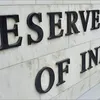SBI to adopt repo rate as external benchmark for MSME, auto, and home loans from Oct 1
SBI has also extended the external benchmark-based lending to medium enterprises, to boost lending to the MSME sector as a whole.

The State Bank of India (SBI) on Monday said it would adopt repo rate as the external benchmark for all floating rate loans for MSME, home, and retail loans, from October 1, 2019.
SBI has also extended the external benchmark-based lending to medium enterprises, to boost lending to the MSME sector as a whole.
It had introduced floating rate home loans effective July 1, 2019, but has made some modifications in the scheme effective October 1, 2019, to comply with the latest regulatory guidelines, the release said.
On September 4, the Reserve Bank of India (RBI) had mandated all banks to link all new floating rate personal or retail loans and floating rate loans to micro, small and medium enterprises (MSMEs) to an external benchmark from October 1 onwards.
The RBI gave the banks options to benchmark their floating rate loans either to repo rate, three-month, or six-month treasury bills or any benchmark market interest rate published by Financial Benchmarks India Private (FBIL).
The move came after industry and retail borrowers complained that banks do not pass on the entire RBI's policy rate (repo rate) reduction to them.
"In order to ensure transparency, standardisation, and ease of understanding of loan products by borrowers, a bank must adopt a uniform external benchmark within a loan category. In other words, the adoption of multiple benchmarks by the same bank is not allowed within a loan category," the RBI had said.
However, Moody's Investors Service had said the move is credit negative to the lenders as it would limit their flexibility in managing risks.
"This is credit negative for India's banks as it will limit their flexibility in managing interest rate risk," Moody's said in a statement.
"Under the new rules, this direct linkage between lending rates and funding costs will no longer exist. This will expose banks to asymmetrical movements in the cost of funding and loan yields, thus exposing them to interest rate risks," it said.
(Edited by Teja Lele Desai)









